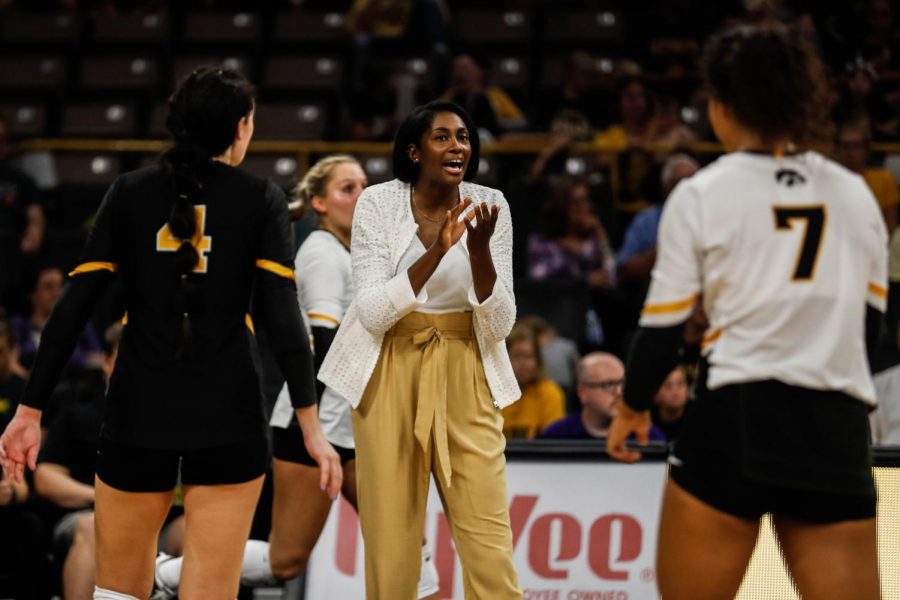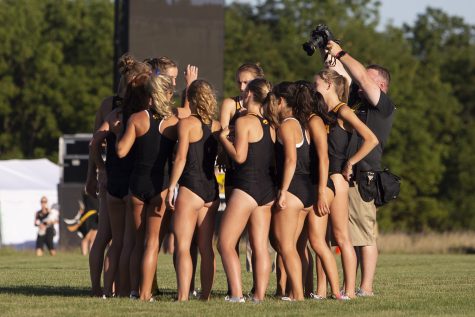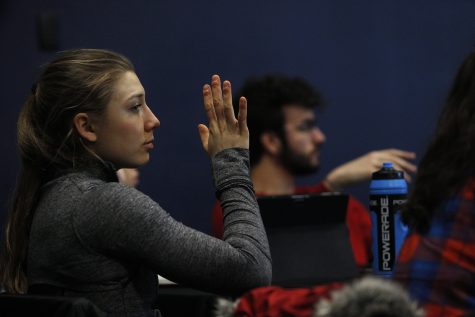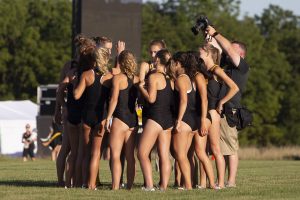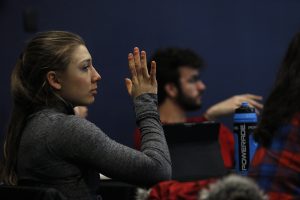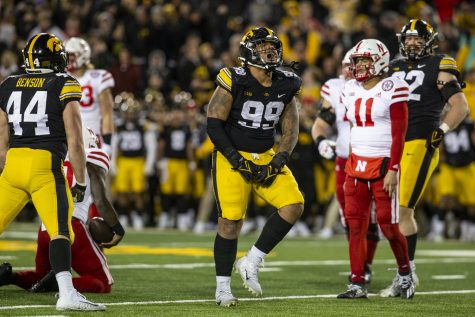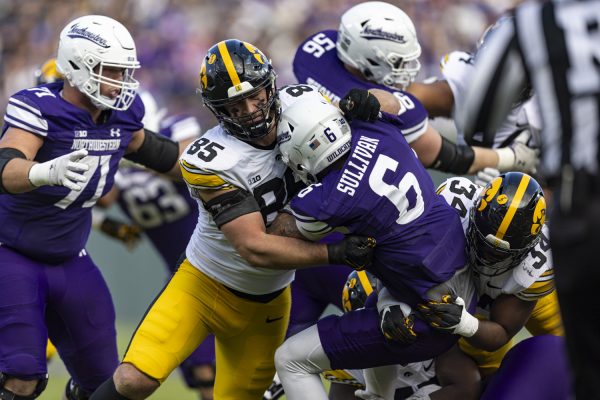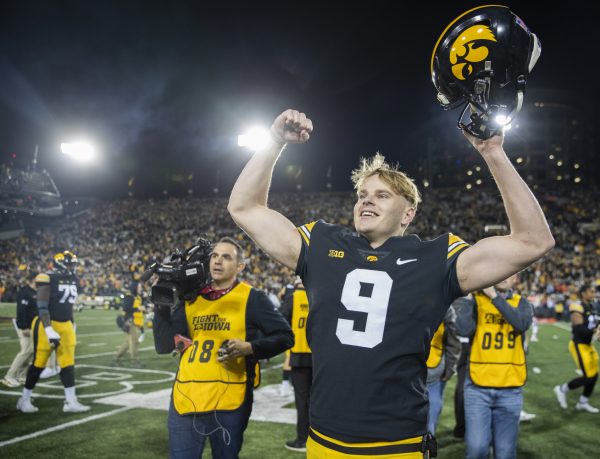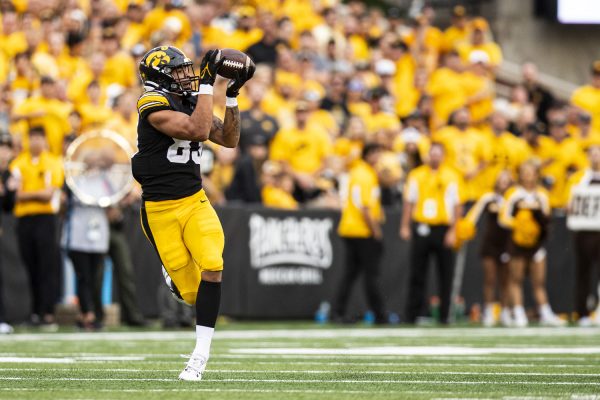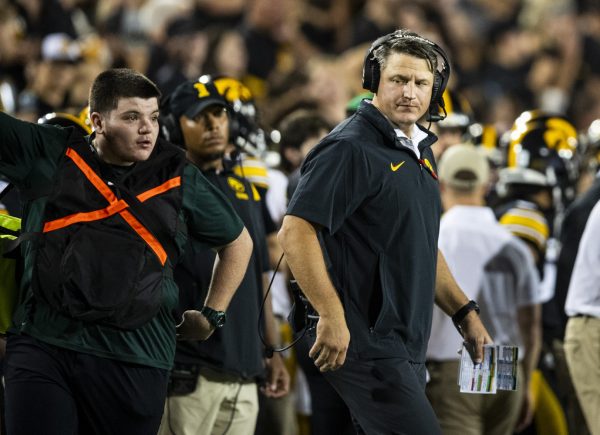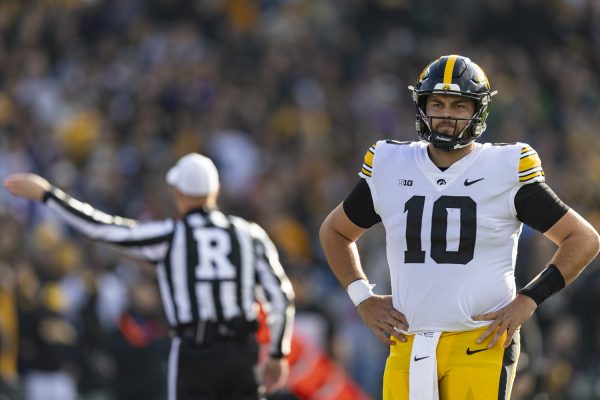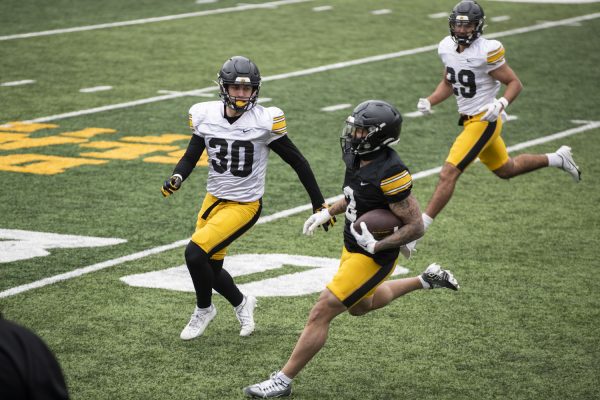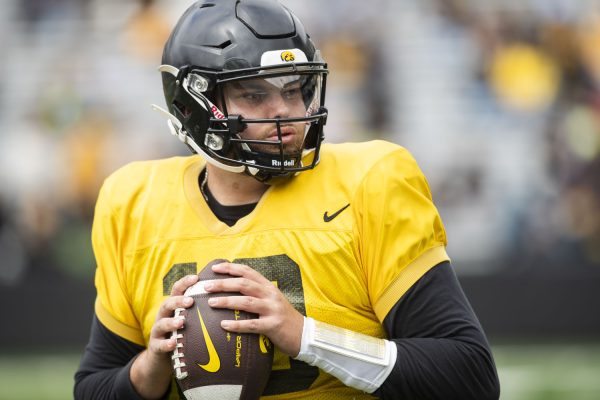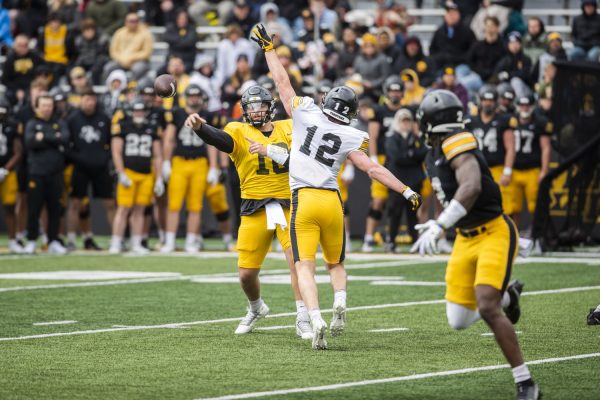Iowa members of Big Ten Anti-Hate and Anti-Racism Coalition starting to take action
Ten University of Iowa members of the Big Ten Anti-Hate and Anti-Racism Coalition are helping to work toward student-athlete empowerment.
Iowa interim head coach Vicki Brown instructs her players during a volleyball match between Iowa and Washington at Carver Hawkeye Arena on Saturday, September 7, 2019.
July 7, 2020
Ten student-athletes, coaches, and staff members from the University of Iowa have been chosen to be members of the Big Ten Anti-Hate and Anti-Racism Coalition.
The team was announced by Big Ten Commissioner Kevin Warren in an open letter June 1, and according to Iowa’s members, is being formed at a crucial time.
According to the Big Ten website, the goal of the coalition is to seek tangible ways to combat racism and hate around the world while also empowering student-athletes to use their rights to free speech rights and peaceful protest.
“Right now, it is the perfect time for people to speak their truth,” said Alexis Sevillian, a redshirt senior on the Iowa women’s basketball team and a member of the coalition. “I think people in the past have been afraid because that is an uncomfortable topic for any race to talk about, but I think now is the perfect time to give people confidence.”
RELATED: Commissioner Kevin Warren creates Big Ten Anti-Hate and Anti-Racism Coalition
Iowa volleyball head coach Vicki Brown said the group is meeting via Zoom in its early stages to start an open dialogue and obtain survey information on actions the coalition would like to take.
Part of the responsibility Iowa’s members are facing is to speak for not only themselves or their sport through the coalition, but for the entire department.
“My responsibility is to bring in another opinion or idea and be a representation of the many voices that make up the Iowa athletic department,” Brown said. “The biggest push is how many voices can we have that will give an insight into how we can make our conference and our institutions better for these student-athletes.”
Along with Sevillian and Brown, Iowa’s delegation includes two other athletes, three other coaches, and three administrators:
- Julius Brents, football player
- Connor McCaffery, baseball and men’s basketball player
- Roz Ellis, assistant field hockey coach
- Fran McCaffery, head men’s basketball coach
- Billy Taylor, assistant men’s basketball coach
- Gary Barta, athletics director
- Barbara Burke, deputy athletics director
- Liz Hollingworth, faculty athletics representative
Members of the coalition from each school were selected through a nomination process.
“It started off with submitting your name if you were interested in being a part of the coalition, and my guess is that a lot of people submitted their names,” Brown said. “I was then nominated for the Big Ten Anti-Hate and Anti-Racism Coalition.”
Athletes that compete on the biggest stages of college and professional sports have potential to convey their message to large numbers of people. Brown said this coalition is working toward helping those college athletes feel more confident about doing so.
“We have seen in different media that athletes should not have a stance on what is happening other than knowing their playbook and that coaches should just coach the practices,” Brown said. “I think the idea that the athlete is more than just their sport, and they are a part of the community and want to make an impact in their community is slowly starting to get out there.”
With the launch of the Voter Registration Initiative, the Big Ten is also working to improve education around participation in the electoral process in order to turn these discussions into action.
The coalition is working alongside the members of this initiative to help student-athletes take action both in and out of the voting booth.
“It begins with dialogue, and it ends with tangible results,” McCaffery said. “In the beginning, it is important to talk and I think more importantly to listen, but as you discuss various topics it becomes, ‘How do we improve it and how do we make it better.’ That is the critical thing.”



